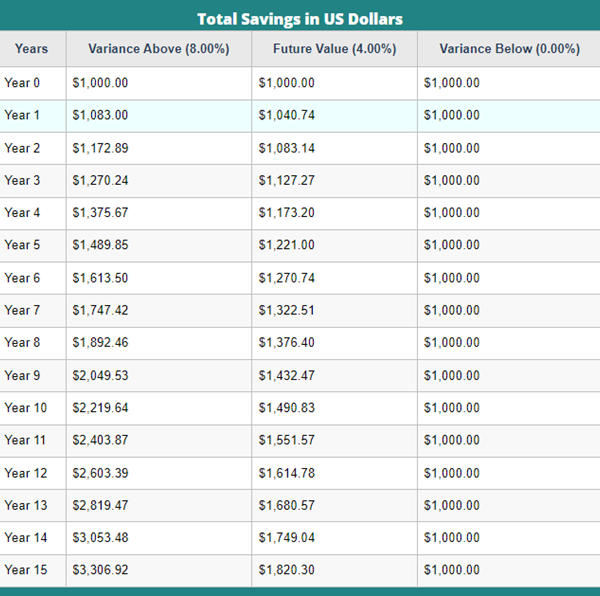I’m going to be honest, sitting down to write this is weird. Getting past the weird is half the battle though, so here we go, just hop over this weird preamble and let’s get into it.
My Money Story
A money story is the narrative you tell yourself about money. It’s exactly what it sounds like, right? To be fair, it is a little more nuanced in that it does spring from our experiences and hold historical / familial ties.
Understanding your money story is important.
For starters, I’m not a financial guru by any stretch. We’re figuring things out as we go over here. I did save my first $1,000 cash by stockpiling all my birthday and Christmas money from my grandparents, though. It took me years to do.
Basically, I’d say I’m a pretty frugal person who grew up with very intentional parents who helped me understand the importance of saving at a very young age. I find money fascinating because it impacts so much of our lives. We almost have to be good at it.
I also find that people either want to avoid talking about money, or they want to talk about it too much.
Today, I’m more interested in sharing about my own story and the psychology behind it.
A Tale of Two Grandpas
My money story begins with my grandfather, Gary. We call him GP.
GP grew up on a farm with his family where they didn’t have electricity or running water installed at the house until his later childhood.
He weathered the Great Depression on the ‘old homestead’ with his mom, dad, two brothers, and two sisters. GP grew up to be a strong athlete, and at 18, he sold two cows to pay his way to a summer semester of college, where he worked to be selected for the full-ride football scholarship he needed to be able to study full-time.
GP ended up winning that scholarship.
He eventually met his wife and moved out of the ‘red clay’ hills where he went on to teach and coach football and eventually finish his masters degree.
To help subsidise raising his family, GP also worked in construction during the summer building houses. This is all significant because these skills impacted my dad and our family quite a bit later in life.
My other grandfather, Bobo, died really young. Like early 40s young. He was a second generation Italian immigrant who worked nonstop.
Bobo started a slew of businesses, but he landed on a dirt work business that he built and ran until he passed. He loved nothing more than working all day with his heavy equipment.
When he wasn’t running dozers and dump trucks, he was working the business at home with his wife, my grandmother. She kept the books for the business.
As you can imagine, I don’t know much about Bobo. He passed when my own mom was barely out of high school.
I know he loved working, loved his wife, and always ran a big garden. He was always doing something.
GP and Bobo’s stories are significant when it comes to shaping the paths that my parents would later lead. The tale of my two grandmothers too, were extremely significant. My Meme ran her own business as an antique dealer with one of her friends on the side, and as I said, my Grandma kept the accounts straight for the dirt business. They both did many, many other things too, but that’s for another story.
My Parents
My dad worked under GP for many years. His first job was straightening bent and used nails so they could be used on future projects. He also helped GP run trot lines for catfish for food.
My mom grew up being influenced by the work ethic of her parents and started working before finish gin high school at 17. She worked and saved from a young age.
Later when my parents were married for a couple of years, they left the country as missionaries. They spent over 10 years in europe with very little support, and no way to make any money. The main thing they did was get better and better at not spending money. They were already frugal, but their skills were refined, to say the least.
I was born into this hard-working, frugal family.
Money Memories
My earliest exposure to money involves gifts from my grandparents, which I saved.
I became a saver due to my own parents highlighting the importance of not buying frivolous things.
Did I want fun, brightly colored plastic toys from Walmart? You bet I did.
But my mom’s small questions of ‘did I really want that’? Was enough for me to realize that the toys would get old fast. She had a point. The few toys I got for Christmas did kind of lose their allure in a couple of days. They weren’t all that cool then. They were actually kind of weird.
These simple questions pulled my young self out of the fun pizzazz of consumerism for a moment and led me to just get some gum and keep the rest for later. I mean, I did want books and maybe a video camera, but I’d need to save up for that.
Also, it goes almost without saying that I was a people pleaser, and if mom only suggested something, it was an easy choice to follow that suggestive leading.
Enter: the Dave Ramsey Envelope System
My parents had us watch Dave Ramsey on VHS when I was around twelve or so. Dave was simply a means to organize the saving habits they had already instilled in myself and my two brothers. We watched the tapes as a family and all got to start our own envelope systems.
My three envelopes included:
- ‘Save’
- ‘Give’
- ‘Spend’
As you can imagine, I liked how fat my envelopes were getting and rarely decided to take any money out, aside from the Give envelope, of course.
Honey Money
At 14 years old, my dad and I started a little side business in our backyard.
The business was a beekeeping business, and boy was it rough. If you’ve ever kept bees or looked into keeping bees, you know it is a BIG labor of love and not the most intuitive thing, especially as my dad was offshore half the time, and I was in school.
We started with a couple of hives and scaled up our colonies little by little. I tried to keep up building hives and optimizing for honey production, but I didn’t know very much and just did the best I could.
Again, this was a very intentional thing my dad did to give me a little business to work at. And work I did, building bee boxes, cleaning up old hives, and trying to maintain adequate space for each colony.
I was able to jar and sell the honey we harvested at a local farmer’s market on Saturdays in the spring and fall. I started by splitting a booth with another local farmer who was selling free-range eggs, but eventually got my own booth where I sold cut flowers, honey, and baked goods.
I didn’t make very much, but consistent with the rest of my life, I worked hard and stockpiled all the profits.
My First Job
Now it’s time to shift gears and talk a little about the working part of my life.
Construction
My first job involved working as a construction helper building single family homes with my family. I worked all through high school and college helping to build homes. We worked as a family crew, my mom, dad, and two brothers, and did everything aside from finishing the slab and running the central A/C systems.
I didn’t spend much during this time either. I was mainly a student and only had time to study and work.
I was fortunate enough to get scholarships for school and to have my parents pay for what wasn’t covered. I was also able to graduate a little early because I discovered CLEP as a freshman and was able to test out of a few classes. It wasn’t much, but it helped.
My biggest expense after graduating college at 20 was going on an 18-day Europe trip with my brother. I spent around $3,000 for the trip. This splurge marked one of the biggest expenses of my life at the time.
Teaching
My first ‘real’ job after graduation was teaching at a private school. At this time, I did start to spend a little more money, this was mostly due to discovering a hobby I enjoyed–west coast swing dancing. It wasn’t the cheapest hobby because it cost registration fees, airfare, hotels, Ubers, dances shoes, and money for food–I was used to eating at home or cooking and rarely ate out, this was a rollover habit from my family’s time on the mission field living on very little and something I later learned really helped me save.
Even given the periodic dance trips and weekly lessons, I still only averaged spending less than $6,000 a year on the hobby. I was still saving well over 60% of my teaching income, living at home at the time, driving a paid-for loaner vehicle my parents let me use.
Administration
I then moved on to a new career in a new city and started incurring some more serious expenses. By this time, I had bought my first vehicle and worked out a pay by-the-night renting situation with one of my dance friends. She lived in a home by herself and agreed to rent me a room and bathroom to me during the work week.
I’d usually travel back home during the weekends, or travel out of state on trips.
It was at this time that I had been introduced to the infamous Mr. Money Mustache blog and realized there were other people out there aggressively saving. Not only that, I discovered that he had whole charts dedicated to converting savings percentages to the number of years it would take for someone to retire.
It was at this time that I started to really track my savings percentage. I used little pocket calendars to do this and geeked out hardcore trying to keep my expenses low.
I was shooting to save 75%-80% of my pretty median income and usually fell around saving 72-73% of my net pay.
It was also at this time that I did choose to leverage my health a bit and live on canned beans and soup. Thankfully, I did get a well-balanced meal visiting my then-boyfriend now husband’s family here and there.
My Now
To wrap things up, I’d say my money story is mainly about me growing up being a pretty strong saver. In the same breath, I’d also say that I wasn’t a very experienced investor and didn’t spend as much time branching out in those those areas as I could have.
My now largely consists of spending more than my single self ever did, with being married and running a household. We maintain a healthy percent of savings and also work to understand our main investment strategies.


